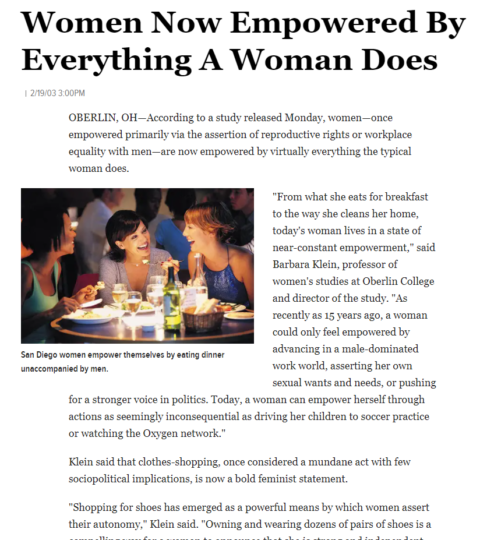Forgotten Weapons
Published 8 Dec 2013Melvin Johnson was a gun designer who felt that the M1 Garand rifle had several significant flaws — so he developed his own semiauto .30-06 rifle to supplement the M1. His thought was that if problems arose with the M1 in combat, production of his rifle could provide a continuing supply of arms while problems with the M1 were worked out. The rifle he designed was a short-recoil system with a multi-lug rotating bolt (which was the direct ancestor of the AR bolt design). When the Johnson rifle was tested formally alongside the M1, the two were found to be pretty much evenly matched — which led the Army to dismiss the Johnson. If it wasn’t a significant improvement over the Garand, Ordnance didn’t see the use in siphoning off resources to produce a second rifle.
The Johnson had some interesting features — primarily its magazine design. It used a fixed 10-round rotary magazine, which could be fed by 5-round standard stripper clips or loose individual cartridges. It could also be topped up without interfering with the rifle’s action, unlike the M1. On the other hand, it was not well suited to using a bayonet, since the extra weight on the barrel was liable to cause reliability problems (since the recoil action has to be balanced for a specific reciprocating mass). Johnson thought bayonets were mostly useless, but the Army used the issue as a rationale to dismiss the Johnson from consideration.
However, Johnson was able to make sales of the rifle to the Dutch government, which was in urgent need of arms for the East Indies colonies. This is where the M1941 designation came from — it was the Dutch model name. Only a few of the 30,000 manufactured rifles were delivered before the Japanese overran the Dutch islands, rendering the rest of the shipment moot.
At this point, Johnson was also working to interest the newly-formed Marine Paratroop battalions in a light machine gun version of his rifle. The Paramarines needed an LMG which could be broken down for jumping, light enough for a single man to effectively carry, and quick to reassemble upon landing. The Johnson LMG met these requirements extremely well, and was adopted for the purpose. The Paramarines were being issued Reising folding-stock submachine guns in addition to the Johnson LMGs, and they found the Reisings less than desirable. Someone noticed that thousands of M1941 Johnson rifles (which could also have their barrel quickly and easily removed for compact storage) were effectively sitting abandoned on the docks, and the Para Marines liberated more than a few of them. These rifles were never officially on the US Army books, but they were used on Bougainville and a few other small islands.
September 8, 2023
Johnson M1941 rifle
QotD: Rents and taxes in pre-modern societies
In most ways […] we can treat rent and taxes together because their economic impacts are actually pretty similar: they force the farmer to farm more in order to supply some of his production to people who are not the farming household.
There are two major ways this can work: in kind and in coin and they have rather different implications. The oldest – and in pre-modern societies, by far the most common – form of rent/tax extraction is extraction in kind, where the farmer pays their rents and taxes with agricultural products directly. Since grain (threshed and winnowed) is a compact, relatively transportable commodity (that is, one sack of grain is as good as the next, in theory), it is ideal for these sorts of transactions, although perusing medieval manorial contacts shows a bewildering array of payments in all sorts of agricultural goods. In some cases, payment in kind might also come in the form of labor, typically called corvée labor, either on public works or even just farming on lands owned by the state.
The advantage of extraction in kind is that it is simple and the initial overhead is low. The state or large landholders can use the agricultural goods they bring in in rents and taxes to directly sustain specialists: soldiers, craftsmen, servants, and so on. Of course the problem is that this system makes the state (or the large landholder) responsible for moving, storing and cataloging all of those agricultural goods. We get some sense of how much of a burden this can be from the prominence of what seem to be records of these sorts of transactions in the surviving writing from the Bronze Age Near East (although I should note that many archaeologists working on the ancient Near Eastern economy are pushing for a somewhat larger, if not very large, space for market interactions outside of the “temple economy” model which has dominated the field for quite some time). This creates a “catch” we’ll get back to: taxation in kind is easy to set up and easier to maintain when infrastructure and administration is poor, but in the long term it involves heavier administrative burdens and makes it harder to move tax revenues over long distances.
Taxation in coin offers potentially greater efficiency, but requires more particular conditions to set up and maintain. First, of course, you have to have coinage. That is not a given! Much of the social interactions and mechanics of farming I’ve presented here stayed fairly constant (but consult your local primary sources for variations!) from the beginnings of written historical records (c. 3,400 BC in Mesopotamia; varies place to place) down to at least the second agricultural revolution (c. 1700 AD in Europe; later elsewhere) if not the industrial revolution (c. 1800 AD). But money (here meaning coinage) only appears in Anatolia in the seventh century BC (and probably independently invented in China in the fourth century BC). Prior to that, we see that big transactions, like long-distance trade in luxuries, might be done with standard weights of bullion, but that was hardly practical for a farmer to be paying their taxes in.
Coinage actually takes even longer to really influence these systems. The first place coinage gets used is where bullion was used – as exchange for big long-distance trade transactions. Indeed, coinage seemed to have started essentially as pre-measured bullion – “here is a hunk of silver, stamped by the king to affirm that it is exactly one shekel of weight”. Which is why, by the by, so many “money words” (pounds, talents, shekels, drachmae, etc.) are actually units of weight. But if you want to collect taxes in money, you need the small farmers to have money. Which means you need markets for them to sell their grain for money and then those merchants need to be able to sell that grain themselves for money, which means you need urban bread-eaters who are buying bread with money, which means those urban workers need to be paid in money. And you can only get any of these people to use money if they can exchange that money for things they want, which creates a nasty first-mover problem.
We refer to that entire process as monetization – when I talk about economies being “monetized” or “incompletely monetized” that’s what I mean: how completely has the use of money penetrated through this society. It isn’t a one-way street, either. Early and High Imperial Rome seem to have been more completely monetized than the Late Roman Western Empire or the early Middle Ages (though monetization increases rapidly in the later Middle Ages).
Extraction, paradoxically, can solve the first mover problem in monetization, by making the state the first mover. If the state insists on raising taxes in money, it forces the farmers to sell their grain for money to pay the tax-man; the state can then take that money and use it to pay soldiers (almost always the largest budget-item in an ancient or medieval state budget), who then use the money to buy the grain the farmers sold to the merchants, creating that self-sustaining feedback loop which steadily monetizes the society. For instance, Alexander the Great’s armies – who expected to be paid in coin – seem to have played a major role in monetizing many of the areas they marched through (along with breaking things and killing people; the image of Alexander the Great’s conquests in popular imagination tend to be a lot more sanitized).
Bret Devereaux, “Collections: Bread, How Did They Make It? Part IV: Markets, Merchants and the Tax Man”, A Collection of Unmitigated Pedantry, 2020-08-21.
September 7, 2023
The not-at-all hidden authoritarian desires of the climate activists
Brendan O’Neill on the increasingly blatant wish of the comfortable greenies to impose actual judicial punishment on those who disagree with their agenda:

“Palace of Westminster”by michaelhenley is licensed under CC BY-NC-SA 2.0
Greens have been dreaming about jailing “climate criminals” for a very long time. Climate-change deniers in particular will “one day have to answer for their crimes”, said eco-author Mark Lynas a few years back. Well, Gaia’s authoritarian army might finally be getting its way. The new Energy Bill currently before the UK House of Commons provides for “the creation of criminal offences”, possibly including jail time, where there is “non-compliance” with energy-saving regulations. Shorter version: keep the lights on for too long and you could end up in the slammer.
The Telegraph is reporting that property owners who fail to adhere to “energy-performance regulations” could “face prison” under the government’s crazy plans. There is concern that homeowners, landlords and business bosses could be whacked with fines of up to £15,000 or a year behind bars if they fall foul of regulations on energy consumption. The government says it has no plans to make it a crime to be an eco-unfriendly user of light and heat, but the bill allows for the creation of such crimes. And this has rattled some MPs. They’re concerned that ministers would be able to “create new offences with limited parliamentary scrutiny” thanks to the new bill.
What is the aim of all this tightening of the screws on energy use? Of the possible future criminalisation of us thieves of heat and light? To help Britain reach its Net Zero targets, of course. Like other Western nations, we’re committed to achieving Net Zero emissions by 2050. And if that means strongarming the little folk into reducing their energy use, so be it. Let’s be clear about what the new bill’s provision for the creation of crimes really represents: the state threatening to punish anyone who refuses to convert to the religion of Net Zero and to sacrifice their energy to the jealous god of environmentalism.
We can now see the iron fist in the green glove. There’s been a creeping criminalisation of eco-disobedient behaviour for some time now. In the UK, we’ve had “rubbish police” looking through people’s bags of trash and slapping them with a £100 fine if they are not properly recycling plastic and paper. Under Low Traffic Neighbourhood schemes, officious local councils erect eyesore bollards to stop people from driving on certain roads, and fine them if they fail to comply. In recent years, more than a million such fines have been served on defiers of the LTN regime, raising more than £100million for the Net Zero cultists who rule over us.
Then there’s London mayor Sadiq Khan’s Ultra Low Emission Zone (ULEZ), now expanded to cover every inch of London. Hundreds of cameras have been installed across the capital, a vast infrastructure of Stasi-like watchmen, to ensure that drivers of “dirty” vehicles have paid the daily ULEZ toll of £12.50. A fine of £500 awaits any driver of a sinful car who hasn’t. To those saying “Of course the government isn’t going to fine people for un-green behaviour!”, wake up – officialdom has been doing this for years.
How Britain Helped the Communist Revolution – War Against Humanity 113
World War Two
Published 6 Sep 2023Fight the Nazis or fight your countrymen? From Marshal Tito’s Partisans in Yugoslavia to the ELAS fighters in Greece, that is the animating question among the Balkans resistance movements. For many, the question is already answered. It is Mihailović and his Chetniks and EDES, EKKA, and the Greek royalist government who must be out-maneuvered first. British foreign policy has so far failed to change this state of affairs, can Churchill get his SOE officers to stop these civil wars?
(more…)
J.R.R. Tolkien was completely at odds with the literati of his day
In The Critic, Sebastian Milbank marks the 50th anniversary of the death of J.R.R. Tolkien:
A romantic Edwardian, steeped in Northern European folklore and Victorian literature, Tolkien was and is despised by large parts of the fashionable literary establishment. I have known very few neutral reactions to his work. People either love or loathe Lord of the Rings, which seems doomed to eternally inspire adoration or ire, and nothing much in between.
The often ferocious response of many critics perhaps stemmed from the apparent anachronism of the book, combined with its massive popularity. It was published in 1954, at a time when literary modernism was dominant and pervading the academy. Modernist writers were obsessed with interiority, broke with prior literary convention, and traded in irony, ambiguity and convoluted psychology. Literary critics of the time were taking up the “New Criticism”, which dispensed not only with the previous generation’s fascination with historical context in favour of close reading, but also with the traditionalist concerns for beauty and moral improvement, which were regarded as subjective and emotionally driven. Spare, complex prose, focused on the darker side of society, was in vogue. Into this context dropped 1,200 pages of dwarves, elves and hobbits in a grand battle of good and evil. They were greeted with the sort of enthusiasm one can imagine.
Edmund Wilson called the books “balderdash”, a battle between “Good people and Goblins”. The book’s morality was a sticking point even for the most sympathetic critics, with Edwin Muir lamenting that “his good people are consistently good, his evil figures immovably evil”. As his work travelled into the 60s, political problems cropped up, with one feminist critic writing a book-length attack on the series to denounce it as “irritatingly, blandly, traditionally masculine”.
The mystery of how a book can so sharply divide opinion is answered perhaps by how profoundly original and unusual The Lord of the Rings and Tolkien’s wider legendarium are. They are shamelessly moralistic, written on the basis of exhaustive literary theory, linguistics, geography and world-building, and quite devoid of social commentary or Empsonian irony. Yet they are as much a radical departure from prior literary forms as modernist literature itself is, making the book doubly at odds with prevailing style and doubly original.
The moralism of Tolkien’s work is not, as some critics seem to suppose, the product of schoolboy simplicity. It is far too rigorous for that. So morally charged and orchestrated is the novel, that it would be numbered amongst the small number of works that might have passed Plato’s test for literature. Not only is this in respect of its exacting honouring of good characters and depreciation of wicked ones within its narrative framework, but equally in Tolkien’s utter refusal of allegory, thus meeting Plato’s challenge that poets are dangerous imitators of the world.
History Summarized: Iceland’s Hallgrimskirkja
Overly Sarcastic Productions
Published 26 May 2023The name is more visually complicated than the church itself.
I tried my best to pronounce all the Icelandic correctly but that LL sound is TRICKY.SOURCES & Further Reading:
Great Courses lectures “Iceland’s Independence” and “The Capital and Beyond in Southwest Iceland” from The Great Tours Iceland by Jennifer Verdolin, “Iceland’s Hallgrimskirkja” from World’s Greatest Churches by William R. Cook. Plus, two visits to Iceland and a lot of time spent staring at the thing.
(more…)
QotD: Techno-pessimism
Unfortunately, by any objective measure, most new things are bad. People are positively brimming with awful ideas. Ninety percent of startups and 70 percent of small businesses fail. Just 56 percent of patent applications are granted, and over 90 percent of those patents never make any money. Each year, 30,000 new consumer products are brought to market, and 95 percent of them fail. Those innovations that do succeed tend to be the result of an iterative process of trial-and-error involving scores of bad ideas that lead to a single good one, which finally triumphs. Even evolution itself follows this pattern: the vast majority of genetic mutations confer no advantage or are actively harmful. Skepticism towards new ideas turns out to be remarkably well-warranted.
The need for skepticism towards change is just as great when the innovation is social or political. For generations, many progressives embraced Marxism and thought its triumph inevitable. Future generations would view us as foolish for resisting it — just like Thoreau and the telegraph. But it turned out that Marxism was a terrible idea, and resisting it an excellent one. It had that in common with virtually every other utopian ideal in the history of social thought. Humans struggle to identify where precisely the arc of history is pointing.
Nicholas Phillips, “The Fallacy of Techno-Optimism”, Quillette, 2019-06-06.
September 6, 2023
Some key planks from Scott Alexander’s presidential platform
I was a bit surprised to find that Scott Alexander has decided to toss his hat into not one, but two party primaries for the 2024 presidential nomination:
The American people deserve a choice. They deserve a candidate who will reject the failed policies of the past and embrace the failed policies of the future. It is my honor to announce I am throwing my hat into both the Democratic and Republican primaries (to double my chances), with the following platform:
Ensure Naval Supremacy And Reduce Wealth Inequality By Bringing Back The Liturgy
The liturgy was a custom of ancient Athens. When the state needed something (usually a new warship) it would ask for volunteers among its richest citizens. Usually one would step up to gain glory or avoid scorn; if nobody did, the courts were allowed to choose the richest person who hadn’t helped out recently. The liturgist would fund the warship and command it as captain for two years, after which his debt to the state was considered discharged and he was given a golden crown. Historians treat the liturgy as a gray area between voluntary service and compulsory taxation; most rich Athenians were eager to serve and gain the relevant honor, but they also knew that if they didn’t, they could be compelled to perform the same service with less benefit to their personal reputation.
Defense analysts warn that America’s naval dominance is declining:
Only 25 per cent of America’s 114 commissioned surface combatants (cruisers, destroyers, and littoral combat ships) are less than a decade old. By comparison more than 80 per cent of China’s 141 destroyers, frigates, and corvettes have been commissioned in the past decade. In the same time period, the United States commissioned 30 surface combatants … The nearly 600-ship Navy of the late 1980s deployed only 15 per cent of the fleet on average. Today, with fewer than 300 ships, the US Navy deploys more than 35 per cent to service its global missions, contributing to a material death spiral.
So America is short on warships. But it is very long on rich people with big egos. An aircraft carrier would cost the richest American billionaires about the same fraction of their wealth as a trireme cost the richest Athenian aristocrats. So I say: bring back the liturgy!
(source)
The American rich already enjoy spending their money on exciting vehicles — yachts for the normies, rockets for the more ambitious, Titanic submersibles for the suicidal. Why not redirect this impulse towards public service? Imagine the fear it would strike into the hearts of the Chinese when the USS Musk enters Ludicrous Mode in the waters off the Taiwan Strait, with Elon himself at the wheel. Imagine how efficiently the USS Jeff Bezos will deliver its payloads! And does anyone doubt that billionaires – usually careful to avoid taxes — will jump at the chance to do this?
The Athenians had a parallel liturgy for rich people who would select and sponsor theater productions, but I think we can skip this one for now.
[…]
Legalize Lying About Your College On Resumes
Colleges trap Americans in a cycle of burdensome loans and act to reinforce class privilege. I have previously advocated making college degree a protected characteristic which it is illegal to ask people about on job applications. But this would be hard to enforce, and people would come up with other ways to communicate their education level.
So let’s think different: let’s make it legal to lie about your college on resumes (it is already not technically illegal to lie on a resume, but companies can ask for slightly different forms of corroboration which it is illegal to lie on). Everyone can just say “Harvard”, and nobody will have any unfair advantage over anyone else.
Start An Internet-Pop-Up Trade War With The European Union
For too long, Americans have groaned under the weight of foreign cookie-related-pop-ups which they and their elected representatives have no control over. It’s time to fight back.
When I am elected, I will mandate that all American websites serve popups to European Union residents explaining why the GDPR is annoying and why it affects even Americans who have no say in it. If the Europeans want to be able to access Google, Facebook, Twitter, or any other US-based site without clicking “I understand” every time they reload it, they’ll have to pressure their government to do something about GDPR.
Appoint Donald Trump Constitutional Monarch
This would require a constitutional amendment, but I’m sure I could convince enough people.
The British experience suggests that the role of a constitutional monarch is to flaunt how rich they are, get 24-7 news coverage regardless of whether or not they do anything interesting, and have scandals. Donald Trump is the best person in the world at all three of these things
Trump wants to be on top, but is not that interested in governing. Meanwhile, American liberals (by revealed preference) want to continue thinking about him every hour of every day forever, but also don’t want him to govern. Constitutional monarchy would satisfy everyone’s preferences. If Trump is destined to destroy democracy — and everyone agrees that he is — let’s make it happen as gently and non-destructively as possible.
Obviously the royal family can’t participate in regular electoral politics, which means no Trump would ever be able to run for office ever again. This is the only way we are ever getting rid of them, you know this is true, please don’t throw away this chance.
I would support reverse primogeniture-based inheritance — ie the youngest son takes the throne — just so we can have a “King Barron”.
“[T]he preemptive hype about [Bottoms] has been fundamentally false, fundamentally dishonest about what constitutes artistic risk and personal risk in 2023″
Freddie deBoer — whose new book just got published — considers the way a new movie is being marketed, as if anything to do with LGBT issues is somehow still “daring” or “risky” or “challenging” to American audiences in the 2020s:
Consider this New York magazine cover story on the new film Bottoms, about a couple of lesbian teenagers (played by 28-year-olds) who start a high school fight club in order to try and get laid. I’m interested in the movie; it looks funny and I’ll watch it with an open mind. Movies that are both within and critiques of the high school movie genre tend to be favorites of mine. But the preemptive hype about it — which of course the creators can’t directly control — has been fundamentally false, fundamentally dishonest about what constitutes artistic risk and personal risk in 2023. The underlying premise of the advance discussion has been that making a high school movie about a lesbian fight club, today, is inherently subversive and very risky. And the thing is … that’s not true. At all. In fact, when I first read the premise of Bottoms I marveled at how perfectly it flatters the interests and worldview of the kind of people who write about movies professionally. As New York‘s Rachel Handler says,
[Bottoms has] had the lesbian Letterboxd crowd, which treats every trailer and teaser release like Gay Christmas, hot and bothered for months. After attending its hit SXSW premiere, comedian Jaboukie Young-White tweeted, “There will be a full reset when this drops.”
And yet to read reviews and thinkpieces and social media, you’d think that Bottoms was emerging into a culture industry where the Moral Majority runs the show. One of the totally bizarre things about contemporary pop culture coverage is that the “lesbian Letterboxd crowd” and subcultures like them — proud and open and loud champions of “diversity” in the HR sense — are prevalent, influential, and powerful, and yet we are constantly to pretend that they don’t exist. To think of Bottoms as inherently subversive, you have to pretend that the cohort that Handler refers to here has no voice, even as its voice is loud enough to influence a New York magazine cover story. This basic dynamic really hasn’t changed in the culture business in a decade, and that’s because the people who make up the profession prefer to think of their artistic and political tastes as permanently marginal even as they write our collective culture.
Essentially the entire world of for-pay movie criticism and news is made up of the kind of people who will stand up and applaud for a movie with that premise regardless of how good the actual movie is. And I suspect that Rachel Handler, the author of that piece, and its editors at New York, and the PR people for the film, and the women who made it, and most of the piece’s readers know that it isn’t brave to release that movie, in this culture, now. And as far as the creators go, that’s all fine; their job isn’t to be brave, it’s to make a good movie! They aren’t obligated to fulfill the expectation that movies and shows about LGBTQ characters are permanently subversive. But the inability of our culture industry to drop that narrative demonstrates the bizarre progressive resistance to recognizing that things change and that liberals in fact control a huge amount of cultural territory.
And here’s the thing: almost everybody in this industry, in media, would understand that narrative to be false, were I to put the case to them this way. This obviously isn’t remotely a big deal — in fact I’ve chosen this piece and topic precisely because it’s not a big deal — and I’m sure most people haven’t thought about it at all. (Why would they?) Still, if I could peel people in professional media off from the pack and lay this case out to them personally, I’m quite certain many of them would agree that this kind of movie is actually guaranteed a great deal of media enthusiasm because of its “representation”, and thus is in fact a very safe movie to release in today’s Hollywood — but they would admit it privately. Because “Anything involving LQBTQ characters or themes is still something that’s inherently risky and daring in the world of entertainment and media, in the year of our lord 2023” is both transparently horseshit and yet socially mandated, in industries in which most people are just trying to hold on and don’t need the hassle.
“[W]hy does the press focus so intently on climate change as the root cause? … it fits a simple storyline that rewards the person telling it”
Patrick T. Brown in The Free Press on how he had to leave out the full truth on climate change to get his paper published:
If you’ve been reading any news about wildfires this summer — from Canada to Europe to Maui — you will surely get the impression that they are mostly the result of climate change.
Here’s the AP: Climate change keeps making wildfires and smoke worse. Scientists call it the “new abnormal”.
And PBS NewsHour: Wildfires driven by climate change are on the rise — Spain must do more to prepare, experts say.
And The New York Times: How Climate Change Turned Lush Hawaii Into a Tinderbox.
And Bloomberg: Maui Fires Show Climate Change’s Ugly Reach.
I am a climate scientist. And while climate change is an important factor affecting wildfires over many parts of the world, it isn’t close to the only factor that deserves our sole focus.
So why does the press focus so intently on climate change as the root cause? Perhaps for the same reasons I just did in an academic paper about wildfires in Nature, one of the world’s most prestigious journals: it fits a simple storyline that rewards the person telling it.
The paper I just published—”Climate warming increases extreme daily wildfire growth risk in California” — focuses exclusively on how climate change has affected extreme wildfire behavior. I knew not to try to quantify key aspects other than climate change in my research because it would dilute the story that prestigious journals like Nature and its rival, Science, want to tell.
This matters because it is critically important for scientists to be published in high-profile journals; in many ways, they are the gatekeepers for career success in academia. And the editors of these journals have made it abundantly clear, both by what they publish and what they reject, that they want climate papers that support certain preapproved narratives — even when those narratives come at the expense of broader knowledge for society.
To put it bluntly, climate science has become less about understanding the complexities of the world and more about serving as a kind of Cassandra, urgently warning the public about the dangers of climate change. However understandable this instinct may be, it distorts a great deal of climate science research, misinforms the public, and most importantly, makes practical solutions more difficult to achieve.
[…] as the number of researchers has skyrocketed in recent years — there are close to six times more PhDs earned in the U.S. each year than there were in the early 1960s — it has become more difficult than ever to stand out from the crowd. So while there has always been a tremendous premium placed on publishing in journals like Nature and Science, it’s also become extraordinarily more competitive.
In theory, scientific research should prize curiosity, dispassionate objectivity, and a commitment to uncovering the truth. Surely those are the qualities that editors of scientific journals should value.
In reality, though, the biases of the editors (and the reviewers they call upon to evaluate submissions) exert a major influence on the collective output of entire fields. They select what gets published from a large pool of entries, and in doing so, they also shape how research is conducted more broadly. Savvy researchers tailor their studies to maximize the likelihood that their work is accepted. I know this because I am one of them.
Radical or Ridiculous? | T-14 Armata | Tank Chats #171
The Tank Museum
Published 26 May 2023In this Tank Chat, David Willey takes a detailed look at a vehicle that has garnered significant interest and controversy — The Russian T-14 Armata. David explores why this vehicle draws so much attention, and how it has taken a radical departure from previous Soviet design philosophy.
(more…)
QotD: Functional delusions
Many of us go to our graves thinking that if only we had had enough time we should have triumphed in some way or another. A few of my patients claimed that, had it not been for some trifling injury to them that was somebody else’s fault, their career would have taken off, as in fact it was just about to do before the injury was done them. This was absurd, for — objectively considered — there was no indication that they would ever have amounted to very much. On the whole, overweight 38-year-olds do not become world-famous athletes, nor do people become concert pianists who take up the piano at the age of 50. But my patients would claim compensation as if their new careers were established fact rather than mere fantasy.
Did they really believe what they were claiming? The human mind, as I am sure many people will by now have observed, is a complex instrument, and works at several levels at the same time. Hence one can be sincere and fraudulent at the same time. It isn’t necessary to be a psychoanalyst to believe in the reality and prevalence of self-deception; indeed, it is necessary to be a kind of Candide not to believe in them, and to be utterly impervious to self-examination into the bargain.
Theodore Dalrymple, “The Grand Illusion”, Taki’s Magazine, 2017-08-19.
September 5, 2023
“… the misogyny myth persists because both sexes want to believe it”
In City Journal, John Tierney disassembles the “misogyny myth” of modern culture:
Misogyny is supposedly rampant in modern society, but where, exactly, does it lurk? For decades, researchers have hunted for evidence of overt discrimination against women as well as subtler varieties, like “systemic sexism” or “implicit bias”. But instead of detecting misogyny, they keep spotting something else.
[…]
If you haven’t heard of this evidence, it’s because of the well-documented misandrist bias in the public discussion of gender issues. Scholars, journalists, politicians, and activists will lavish attention on a small, badly flawed study if it purports to find bias against women, but they’ll ignore — or work to suppress — the wealth of solid research showing the opposite. Three decades ago, psychologists identified the “women-are-wonderful effect”, based on research showing that both sexes tended to rate women more positively than men. This effect has been confirmed repeatedly — women get higher ratings than men for intelligence as well as competence — and it’s obvious in popular culture.
“Toxic masculinity” and “testosterone poisoning” are widely blamed for many problems, but you don’t hear much about “toxic femininity” or “estrogen poisoning”. Who criticizes “femsplaining” or pretends to “believe all men”? If the patriarchy really did rule our society, the stock father character in television sitcoms would not be a “doofus dad” like Homer Simpson, and commercials wouldn’t keep showing wives outsmarting their husbands. (When’s the last time you saw a TV husband get something right?) Smug misandry has been box-office gold for Barbie, which delights in writing off men as hapless romantic partners, leering jerks, violent buffoons, and dimwitted tyrants who ought to let women run the world.
Numerous studies have shown that both sexes care more about harms to women than to men. Men get punished more severely than women for the same crime, and crimes against women are punished more severely than crimes against men. Institutions openly discriminate against men in hiring and promotion policies — and a majority of men as well as women favor affirmative-action programs for women.
The education establishment has obsessed for decades about the shortage of women in some science and tech disciplines, but few worry about males badly trailing by just about every other academic measure from kindergarten through graduate school. By the time boys finish high school (if they do), they’re so far behind that many colleges lower admissions standards for males — a rare instance of pro-male discrimination, though it’s not motivated by a desire to help men. Admissions directors do it because many women are loath to attend a college if the gender ratio is too skewed.
Gender disparities generally matter only if they work against women. In computing its Global Gender Gap, the much-quoted annual report, the World Economic Forum has explicitly ignored male disadvantages: if men fare worse on a particular dimension, a country still gets a perfect score for equality on that measure. Prodded by the federal Title IX law banning sexual discrimination in schools, educators have concentrated on eliminating disparities in athletics but not in other extracurricular programs, which mostly skew female. The fact that there are now three female college students for every two males is of no concern to the White House Gender Policy Council. Its “National Strategy on Gender Equity and Equality” doesn’t even mention boys’ struggles in school, instead focusing exclusively on new ways to help female students get further ahead.
The worst Prime Minister in Canadian history?
My own opinion is that the Trudeaus, taken together, are certainly the worst family to have been political leaders of Canada, but is Justin Trudeau the single worst PM in history?
Like father, like son, a dynastic peril. I should mention at this point that the best short article on Justin Trudeau’s unfitness for office was posted on this site by my wife Janice Fiamengo some two years back. It would be folly for me to try to outdo her writerly excellence, unflappable tact, and marksman-like precision. Here I offer an updated summing-up of why Justin Trudeau is surely unprecedented in the annals of Canada’s ideological destitution. The daily spectacle we are witnessing, the eruption of political sludge and magma from the depths of government policy, puts paid to any promotional salvage operation.
This is a prime minister who has been implicated in numerous scandals and cited for several ethics violations, all to no avail. He has imposed a needless and prohibitive carbon tax upon a groaning nation and propelled the national debt into the fiscal asteroid belt. He is soft on terrorism, having awarded a $10.5 million reparation payment to al-Qaeda terrorist, and the son of Ahmed Said Khadr, Omar Khadr, who had been imprisoned in Guantanamo for killing an American medic in Afghanistan. Trudeau also sympathized with Boston Marathon bomber Dzhokhar Tsarnaev, a Muslim immigrant from Chechnya, who killed three people and injured another 170, saying, “there is no question that this happened because there is someone who feels completely excluded”.
As noted, this is a prime minister who has bought the media with elaborate financial gifts, who admires the “basic dictatorship” of Communist China, and has made no secret of his fondness for Castro, waxing eloquent in his eulogy for the dead dictator, and who, like his father, has adopted an energy policy intended to phase out the western petroleum industry in the interests of a “just transition” to inefficient green renewables, and thus cripple the economic foundation of the country in perpetuity.
This is a prime minister who mandated draconian COVID-19 protocols — masks, quarantines, lockdowns, vaccines. The entire effort is now known to have been a colossal blunder whose results were ineffective at best and noxious, even lethal, at worst. Concerning the vaccines, Trudeau now claims that he did not force anyone to take them but “chose to make sure all of the incentives and all of the protections were there to encourage Canadians to get vaccinated”. In other words, offer them an incentive they can’t refuse. The “incentives” amounted to interventions like losing one’s job, livelihood, social freedoms, and Charter rights. Even people who did remote work had to be vaccinated; if they were fired, they were ineligible for Employment Insurance.
Giving Trudeau’s protestations the lie, in a Sept. 16, 2021 interview aired on the French-language program “La semaine des 4 Julie“, he referred to unvaccinated Canadians as “extremists”, as people who “don’t believe in science or progress and are very often misogynistic and racist”. “A leader who expresses such detestation for his own people,” Janice writes, “and encourages frightened followers to participate in their dehumanization should not be trusted with the reins of government.” It’s hard to disagree.
We should never forget that this is a prime minister who in February 2022 invoked the dictatorial powers of the Emergencies Act — a Trudeau habit — to crush a peaceful, legitimate, and justifiable protest against the vaccine mandates by a brave and patriotic cohort of the country’s truckers and who authorized the banks to freeze protesters’ accounts, reminiscent of the Nazi 1938 Decree for the Reporting of Jewish-Owned Property issued by Hitler’s government. The mind boggles.









